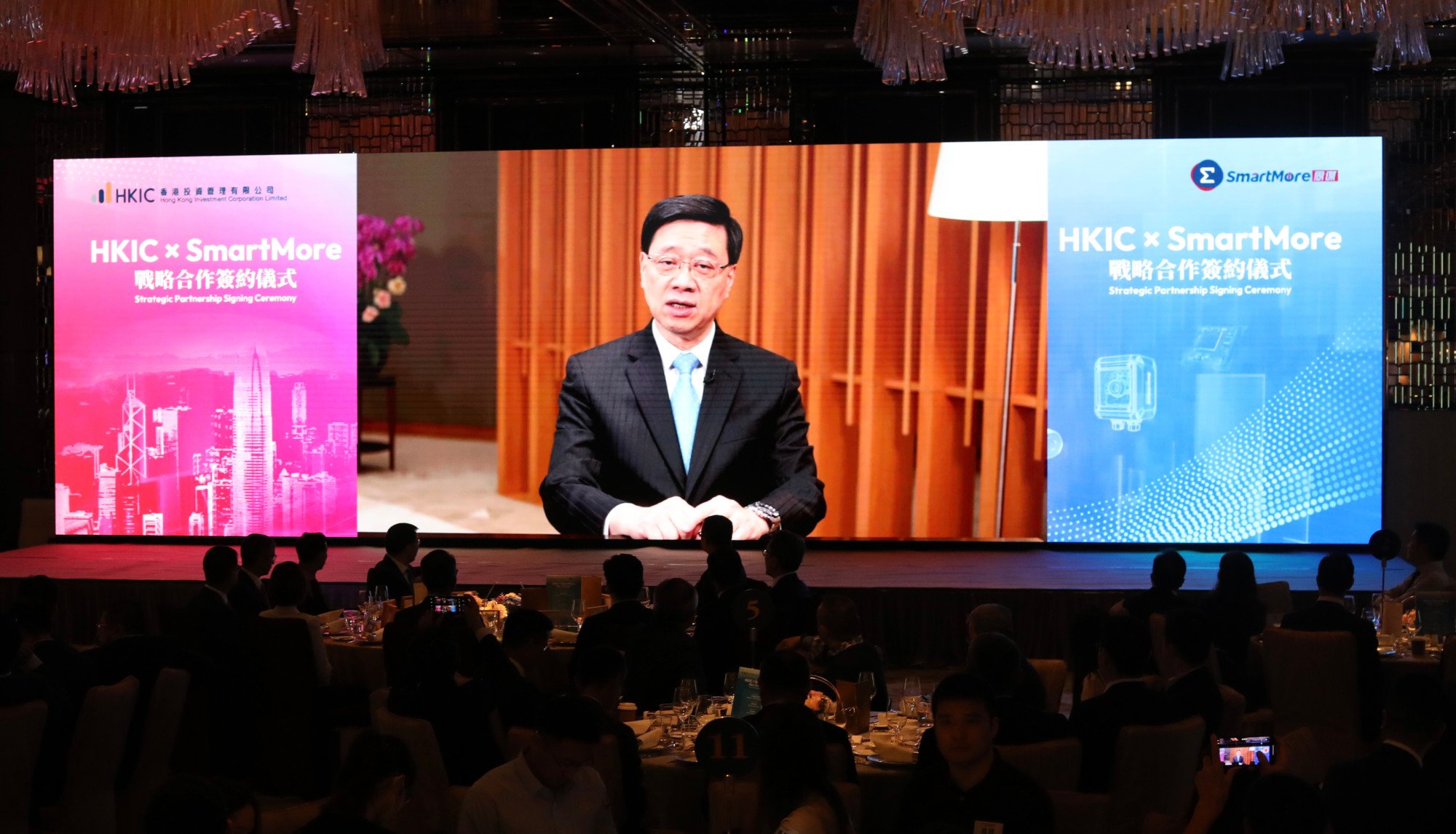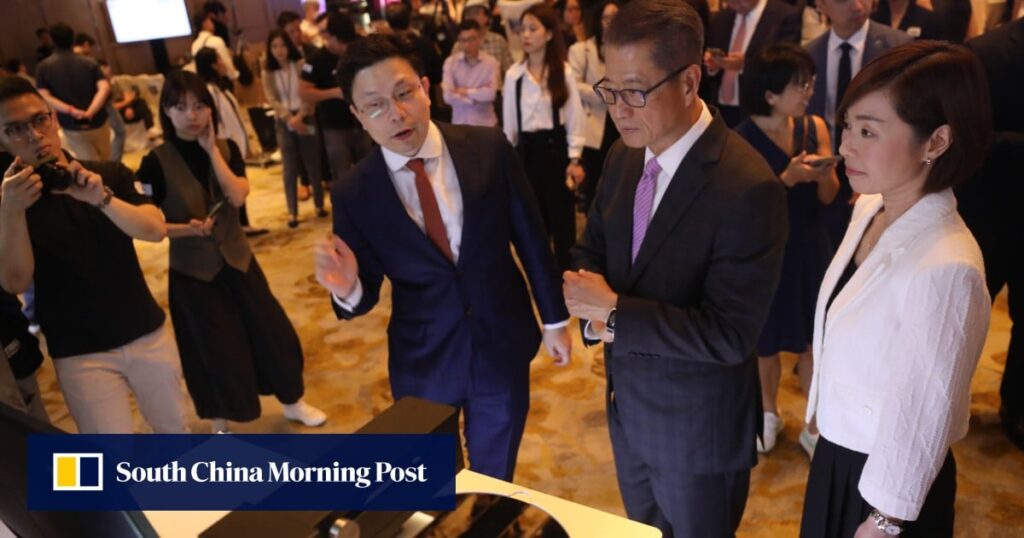Privately held SmartMore doesn't release financial data but is known as one of China's fastest-growing startups. The company exhibited a range of products at the ceremony, from sensor barcode readers to automated machines designed to quickly find defects in products such as cellphone frames and earphones on the production line.
According to a SmartMore brochure, its products are used by major clients around the world, including advanced lens maker Carl Zeiss, European aircraft manufacturer Airbus, and Japanese camera and office equipment maker Canon. Mainland Chinese clients include leading TV maker TCL, smartphone brand Oppo, and Foxconn Technology Group, Apple's largest contractor.
SmartMore's business focuses on applying artificial intelligence, automation and optical engineering to factory machinery – the result of more than two decades of research expertise accumulated by founder Jia Jiaya and fits into China's broader strategy of upgrading its vast network of manufacturing facilities with cutting-edge technologies.
Speaking in Cantonese, Mandarin and English – Hong Kong's official languages - Jia said on Wednesday that Hong Kong would be the first choice for a future IPO for Smartmore, which has raised at least three rounds of capital from investors including IDG Capital and Hongshan at an estimated valuation of HK$10 billion.
Going public is a “must” for the company to raise funds for expansion and deliver profits to shareholders, said Jia, who came to Hong Kong in 2000 to study at the Hong Kong University of Science and Technology and joined the Chinese University of Hong Kong in 2005.
The founders did not provide a timeline for SmartMore's plans to go public, saying the company is seeking favorable financial and economic conditions.
HKIC CEO Clara Chan said Smartmore is tasked with strengthening Hong Kong's technology ecosystem, though she declined to say how much the government will invest in the company.

In a video-recorded speech, Hong Kong Chief Executive Lee Ka-chao heaped praise on Smartmore, saying the company's deal with HKIC was significant because it also included plans to establish “Hong Kong's first Artificial Intelligence Academy.”
Hong Kong is pinning big hopes on tech start-ups to help reinvent its economy at a time when rising tensions between the United States and China are threatening the city's traditional advantages in finance, shipping and trade.
Asked about the impact of geopolitical factors such as restrictions on chip supplies from the U.S. on Smartmore, Jia said the company's business would be relatively unaffected by such restrictions because the chips used in smart manufacturing machines are not as advanced as those used in consumer electronics such as smartphones.

